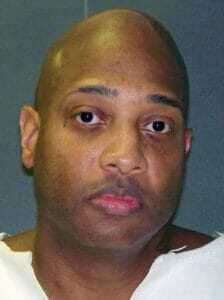
TaiChin Preyor was executed by the State of Texas for the murder of a man during a robbery. According to court documents TaiChin Preyor would stab to death Jami Tackett during a drug deal gone bad. TaiChin Preyor attempted to get his death sentence overturned due to his lawyers using Wikipedia and relying on a disbarred lawyer to fight his case. TaiChin Preyor would be executed by lethal injection on July 27 2017
TaiChin Preyor More News
The state of Texas executed TaiChin Preyor on Thursday night after the U.S. Supreme Court refused to hear a last-minute appeal.
Preyor, 46, was put to death by lethal injection at a state corrections unit in Huntsville in the fatal stabbing of Jami Tackett during a drug-related robbery in 2004, The Associated Press reported. He claimed he acted in self-defense but was convicted of capital murder.
Preyor had argued that a previous attorney collaborated with a disbarred lawyer, relied on Wikipedia and double-billed his family and the court.
The attorney who handled Preyor’s initial appeal was a real-estate specialist from Beverly Hills, Calif., who partnered with a man who had been disbarred for incompetence 15 years earlier — without informing the court, Preyor said in his latest motions.
“The federal habeas petition the duo filed in the District Court was so facially inadequate that it subsequently became its own ironic meme, circulated among habeas attorneys as an example of what not to do,” Preyor’s eleventh-hour appeal argued.
The California attorney had never appeared in a case in Texas state court, and a 2014 printout in her files showed that she did not do research about the death penalty in Texas until it was too late.
“It appears she relied on Wikpedia, of all things, to learn the complex ins and outs of Texas capital-punishment law,” the motion reads.
“Her files included a copy of the Wikipedia page titled, ‘Capital punishment in Texas,’ with a post-it note stating ‘Research’ next to highlighted passages of ‘habeas corpus appeals’ and ‘subsequent or successive writ applications.'”
Preyor’s mother paid the duo $45,000 for their services, but the lawyer also billed the court for representing Preyor, the motion said.
“Preyor cannot be bound by the acts of two incompetent charlatans,” the new lawyers wrote in their Supreme Court petition. The previous attorney did not respond to a request for comment.
In its response to Preyor’s appeal, the state said the inmate failed to show that what his ex-lawyer did “amounts to fraud on the court.” The state also said Preyor had waited too long to make his claim, which was filed two weeks before his execution.
In another brief, the state said Preyor’s appeal “highlights a disturbing pattern of behavior he has exhibited for years: obtaining counsel, becoming dissatisfied with counsel’s performance, and acquiring new counsel who then complains about former counsel’s representation.”
Asked by the prison warden Thursday night whether he had a final statement, Preyor replied: “First and foremost, I’d like to say: Justice has never advanced by taking a human life,” according to the AP. Then he said he would love his wife and children “forever and always.”
“That’s it,” Preyor said.
As the lethal dose of pentobarbital began taking effect, he took several deep breaths, then began snoring, each sound decreasing in volume. Within a minute, all movement stopped.
He was pronounced dead 19 minutes later
